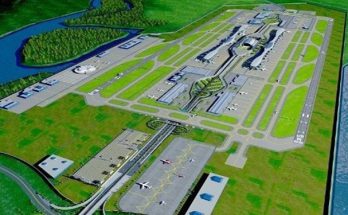 Kenya is hoping to boost the capability of its fish market with plans to upscale tuna trades. Cabinet Secretary (CS) for Agriculture Willy Bett said the nation was enthusiastic about utilizing the blue economy by expanding its yearly fish yield of 128,000 metric tons to more than 430,000 metric tons.
Kenya is hoping to boost the capability of its fish market with plans to upscale tuna trades. Cabinet Secretary (CS) for Agriculture Willy Bett said the nation was enthusiastic about utilizing the blue economy by expanding its yearly fish yield of 128,000 metric tons to more than 430,000 metric tons.
The blue economy is the feasible and productive utilization of sea or ocean waters for economic progress with diminishing disruptions to the aquatic and marine life. CS Bett mentioned a while ago in a gazette notice that the nation intends to expand its tuna fish generation that presently remains at 20%, which is the second biggest on the planet, taking advantage of the $2 billion (Sh200 billion) market worldwide.
He said in spite of the difficulties the sector experiences, including environmental change, there is great potential in Kenya’s Exclusive Economic Zone (EEZ) in the Western Indian Ocean that by itself has a potential of approximately Sh300,000 metric tonnes of fish every year. Bett said, “The high valued tropical tuna and tuna-like fish species are abundant in the Kenyan EEZ and its surrounding high seas due to the location within the seasonal inter-monsoon up swelling phenomenon.”
Kenya rounds up Sh21.3 billion annually from selling 128,000 metric tonnes of fish, where foreign trade rakes in Sh2.1 billion while the rest is made from farm gate deals. The exports are acquired from freshwater (81%), aquaculture (12%) and marine waters a meagre 7%.
This leaves an enormous potential of more than 50% proportionate to Sh30 billion. Lake Turkana is among the water bodies with undiscovered potential estimated at 30,000 metric tonnes of fish. Mr Bett said Kenya needs to exploit the 1,420km-long coastline to develop the business through the blue economy.
Be that as it may, one of the greatest hindrances of taking advantage of the blue economy, noticed the CS, is the unlawful, unreported and unregulated fishing exercises in the nation’s marine waters. Others are post-harvest losses, absence of transitional boundary administrations in the East African Community and lack of foundation and infrastructure that has weakened local fishers to proceed into deep ocean fishing.
“To smoothen unregulated fishing in the marine waters, Kenya has acquired an offshore patrol vessel and established a Fisheries Monitoring, Control and Surveillance Centre,” said the CS.



